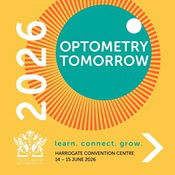General News
Optical sector bodies act on Health and Care Bill
Health and Care Bill: Representation of primary care professions
From the British Medical Association, British Dental Association, Pharmaceutical Services Negotiating Committee, Optometric Fees Negotiating Committee and National Community Hearing Association on behalf of NHS Primary Care Call:
To ensure the Health and Care Bill mandates that the primary care professions be included as mandated members of Integrated Care Partnerships and are consulted on decisions affecting their services
Key points:
• Primary care delivers the vast majority of NHS care to the population and is primarily where the
prevention agenda will be delivered and inequalities in health and care access and outcomes will be
tackled.
• It is crucial to bring the real-world experience of front-line primary health and care professionals into
shaping genuine integration at strategic level in all Integrated Care Partnerships.
• Just as with NHS Trusts and social care, the inclusion of the primary care professions in strategic
advice, planning and decision-making is too important to be left to arbitrary local decision.
• Primary care must be represented and involved in decision-making at all levels of the Integrated Care
Systems, including through formalised roles for GPs, dentists, community pharmacists, primary eye
care professionals and primary hearing care audiologists in Integrated Care Partnerships.
• Integrated Care Boards and Partnerships should also have a duty to consult the relevant Local
Representative Committees (Local Medical, Dental, Pharmaceutical and Optical Committees) and
primary care audiology when agreeing their annual forward plan and when making any decisions that
affect primary care services, and if they choose not to heed their advice explain the reasons in writing
and make public.
Support for reform
1. Primary care fully supports integrated health and social care, the focus on prevention and early intervention,
and shaping services around the needs and wishes of individual patients and populations – this is how
primary care already operates.
2. Primary care welcomes the plans to retain national contracts and negotiating mechanisms for primary care.
This is crucial as primary care budgets are already dwarfed by hospital spending and must be protected.
Indeed, they must grow in order to increase capacity to meet growing healthcare needs and to deliver more
care closer to home. This is unlikely to happen without all parts of primary care being round the crucial
strategic, advisory table – primary care must not be an after-thought.
3. Existing NHS primary care practices should be the ‘go to’ providers for expanding NHS capacity outside
hospital, making use of pre-existing skills and facilities, building on and expanding the existing primary care
estate and minimising the transaction costs of setting up new services. The new NHS Provider Selection
Regime should actively facilitate this and be designed to avoid the commissioning mistakes of the past.
Voice and influence
4. For all these reasons, it is vital that clinical representation and engagement from across primary care is
embedded at strategic advisory level in each ICB’s Integrated Care Partnership. These realities were
recognised in the NHS Long Term Plan but are not guaranteed in this Bill. The NHS Long Term Plan should be
taken seriously and a greater voice for primary care built in.
5. Without mandatory engagement at strategic partnership level, genuine change and service transformation
will not happen – either aims will be unrealistic (uninformed by primary care realities) or insufficiently
transformative (overlooking primary care-based opportunities).
6. ICBs and Integrated Care Partnerships already have the backlog and the lasting effects of the pandemic to
deal with and, without primary care engagement as equal partners at the table as of right, recovery will be
seriously impeded, opportunities missed, and serious transformation will not happen.
Local Primary Care Committees
7. Local Representative Committees (Local Medical, Dental, Pharmaceutical and Optical Committees) have been
an important part of the NHS since its foundation as the effective voices of primary care and sources of
professional clinical leadership at strategic level. Their vital role as the statutory voice of primary care
contractors must be recognised through mandated roles within Integrated Care Partnerships to connect local
grassroots clinicians and proximity to patients with strategic planning and advice.
8. To ensure parity of voice and support with Trust, NHS commissioning and social care staff, GP, dentistry,
pharmacy and primary eye and hearing care roles on Integrated Care Partnerships should be remunerated,
otherwise they will not be able to attend crucial meetings and will not be in the room when key advice is
given to commissioners.
9. Integrated Care Boards and Partnerships should also have a duty to consult the relevant Local Representative
Committees and primary care audiology when agreeing their annual forward plan and when making any
decisions that affect primary care services, and if they choose not to heed their advice explain the reasons in
writing and make public.
Workforce
10. Primary care generally welcomes the commitment to more effective workforce planning but this needs to be
based on the changing shape of the workforce in the 21st century (as a minimum using whole time
equivalents, not headcount) and more attention needs to be given to retention and vocational training to
secure sufficient primary care clinicians for the future.
11. The NHS and social care must have the workforce required to meet the needs of the population, now and in
the future, and some ICB geographies will be too small to plan effectively. The Bill should be strengthened to
include a responsibility for the Secretary of State to produce ongoing, accurate and transparent workforce
assessments to directly inform recruitment needs, as well as responsibility for delivering these staff.






















